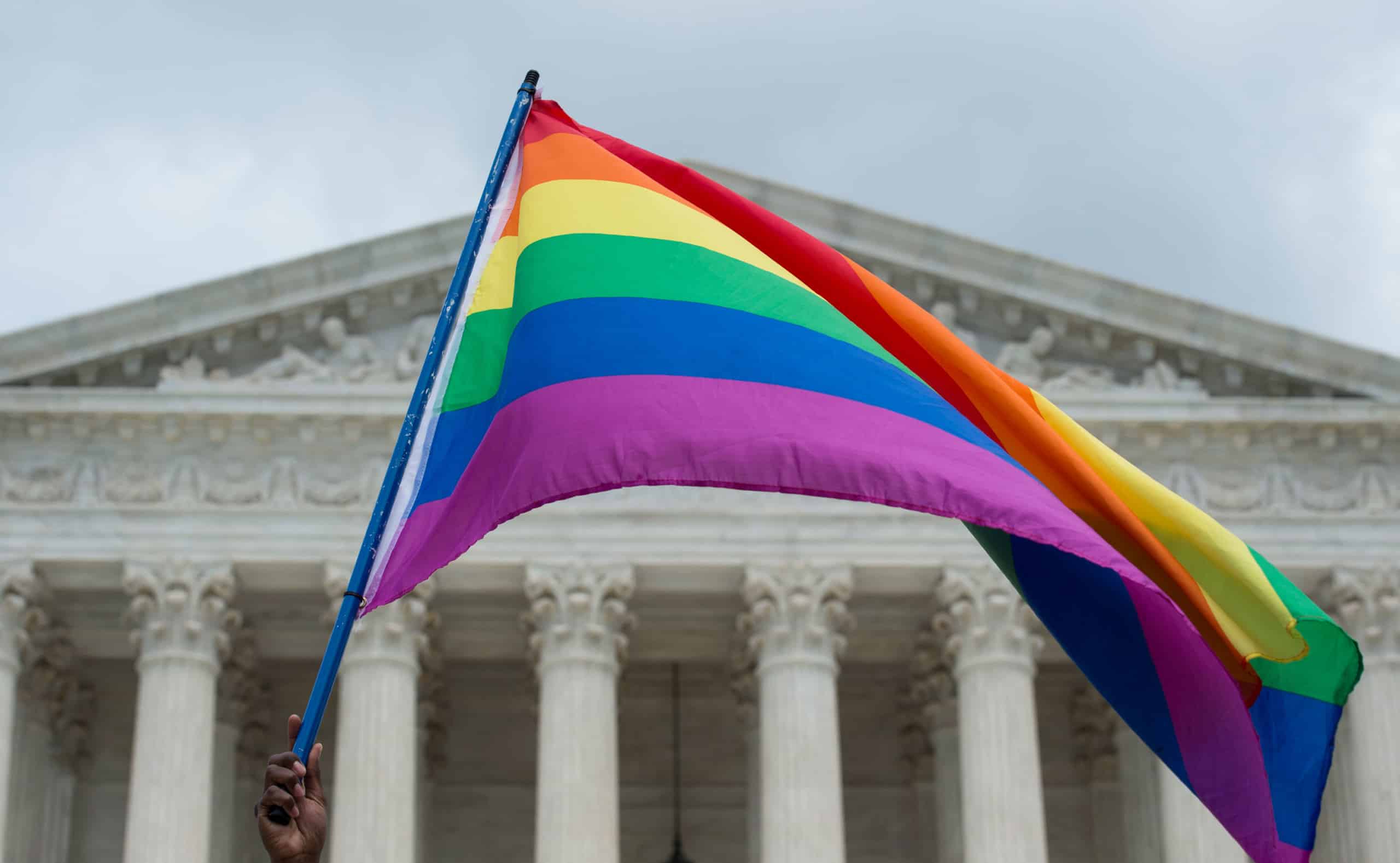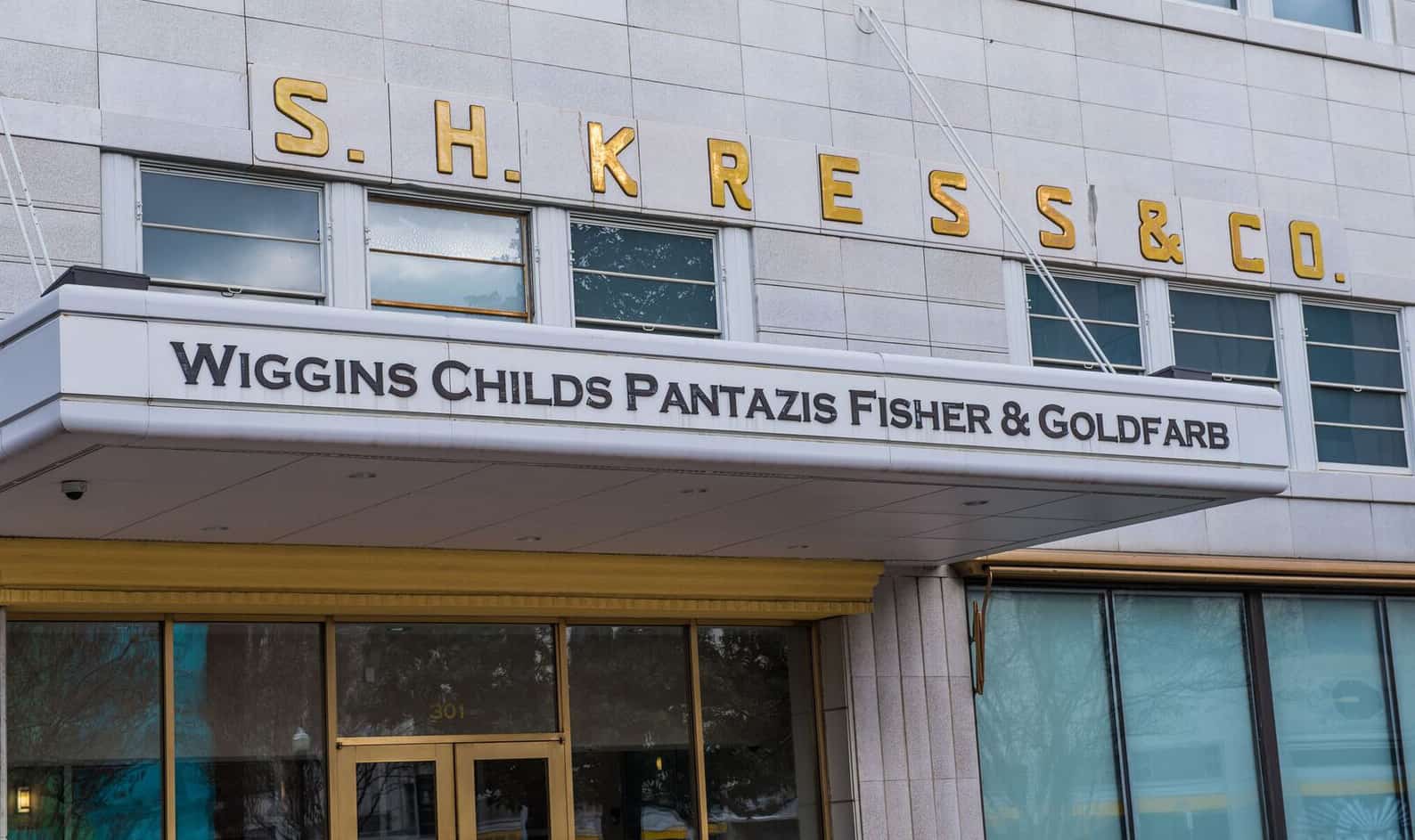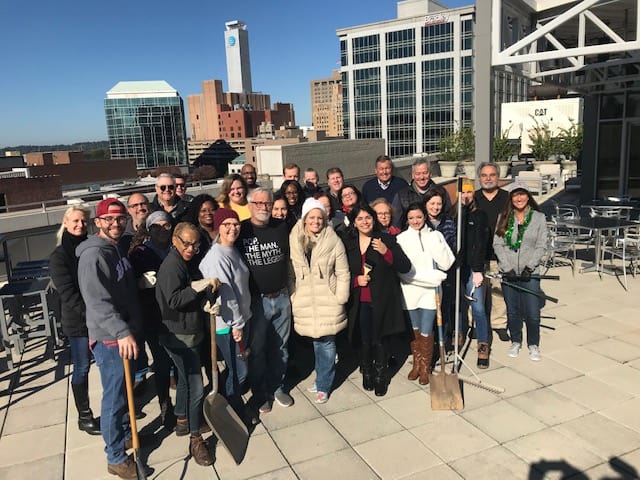Kameron Buckner

The Supreme Court Rules To Protect LGBTQ Workers From Discrimination
On Monday, June 15, the United States Supreme Court, in a 6-3 opinion, held in the case of Bostock v. Clayton County, GA, Case No. 17-1618, that an employer who discharges an employee for being gay or transgender violates the anti-discrimination statutes contained at 42 U.S.C. 2000e, et seq., referred to as Title VII of the Civil Rights Act of 1964.
Title VII prohibits discrimination based upon “sex”. Prior to the Court’s ruling, there was a split of opinion as to whether discrimination based on sexual orientation or transgender status fell within the prohibition against sex discrimination. In other words, was firing someone based on sexual orientation firing someone because of his or her “sex”.
The language of Title VII makes it unlawful to discriminate in employment decisions “because of such individual’s race, color, religion, sex, or national origin.” The Court’s opinion, authored by Justice Gorsuch, stated that, “An employer who fires an individual for being homosexual or transgender fires that person for traits or actions it would not have questioned in members of a different sex. Sex plays a necessary and undisguisable role in the decision, exactly what Title VII forbids.”
The ruling rests primarily upon a simple, straightforward textual reading of the statute. Simply put, Justice Gorsuch’s guiding principle was to give operation to the “plain and ordinary” meaning of the words Congress used in Title VII. He used a simple example to illustrate that firing someone because he or she is homosexual is firing someone because of “sex”.
An individual’s homosexual or transgender status is not relevant to employment decisions. That’s because it is impossible to discriminate against a person for being homosexual or transgender without discriminating against that individual based on sex. Consider, for example, an employer with two employees, both of whom are attracted to men. The two individuals are, to the employer’s mind, materially identical in all respects, except that one is a man and the other a woman. If the employer fires the male employee for no reason other than the fact he is attracted to men, the employer discriminates against him for traits or actions it tolerates in his female colleagues. Put differently, the employer intentionally singles out an employee to fire based in part on the employee’s sex, and the affected employee’s sex is a but-for cause of his discharge.
The Court’s ruling has immediate precedential effect, and means that employees who are discriminated against in the workplace based upon homosexuality or transgender status have a cause of action under the discrimination statutes for that discrimination.
This information was prepared by Brian Clark.


Wiggins Child’s Attorneys Named Top Attorneys by Birmingham Magazine
Wiggins, Childs, Pantazis, Fisher, & Goldfarb is proud to announce that three of the firm’s lawyers were named 2020 Top Attorneys of Birmingham.
Birmingham Magazine conducted its eleventh annual peer-reviewed survey, asking more than 4,000 local attorneys and registered members of the Birmingham Bar Association for their nominations. Attorneys were recognized for their experience and knowledge within 35 practice areas.
The WCPFG attorneys selected as Top Attorneys of Birmingham include:
Jon C. Goldfarb top attorney in
Brian Clark top attorney in
Sidney M. Jackson top attorney in
Civil Rights, Employment, Labor & Employment Law



The complete list of Top Attorneys appears in the April 2020 issue of Birmingham Magazine.
EMPLOYEE RIGHTS AND THE CORONAVIRUS (COVID-19)
The coronavirus or COVID-19 has brought increasingly unsettling work situations for millions of people throughout the United States. These are challenging times for all of us but that challenge does not allow employers to unlawfully deprive employees of their employment rights. The attorneys at Wiggins, Childs, Pantazis, Fisher, & Goldfarb are determined to continue to protect people’s employment rights. We have prepared a set of FAQs to explain how federal, state, and local laws can protect your job, your wages, and your livelihood.

Frequently Asked Questions
- Do I have any protections if I’m going through hardships due to the coronavirus outbreak?
Congress passed the Coronavirus Aid, Relief, And Economic Security Act (“CARES”), that was signed into law by the President on March 27, 2020. The CARES Act contains numerous provisions concerning public health and welfare, and direct economic aid to businesses and individuals alike. In addition, the CARES Act contains some important protections for consumers who may be facing the economic effects of the COVID-19 pandemic. Among those protections are:
- Mortgage Relief: About two-thirds of all mortgages are federally backed. If yours is, a mortgage company or servicer may not initiate foreclosure proceedings for a sixty-day period beginning March 18, 2020. Moreover, a homeowner with a federally backed mortgage may request and obtain forbearance from mortgage payments for up to180 days. You can determine if your mortgage is federally backed by looking it up at https://ww3.freddiemac.com/loanlookup/ or https://www.knowyouroptions.com/loanlookup#; by calling 877-622-8525 to determine if your mortgage is FHA insured; or by checking your mortgage documentation for specific language identifying it as a VA loan.
- Eviction Protection: The CARES Act forbids the institution of eviction proceedings or the charging of additional fees for late rent payments for 120 days after the Act’s March 27, 2020 enactment date.
- Student Loan Relief: Federal Direct Student Loans and FFEL loans owned by the Department of Education have had their payment schedules suspended through September 30, 2020. While the payments are suspended, not interest will accrue, and no collection activity against the borrower may be instituted.
- Credit Reporting: From January 31, 2020, until 120 days after the end of the national state of emergency, if a creditor has made an accommodation, the creditor shall report that account in the same status as before the accommodation.
A more complete listing of the consumer protection provisions of the CARES Act can be found on the National Consumer Law Center website at https://library.nclc.org/major-consumer-protections-announced-response-covid-19.
- In addition to the specific provisions of the CARES Act, any contract could be subject to three particular legal doctrines: (1) force majeure; (2) frustration of essential purpose: and (3) Impossibility of performance. Force majeure, or act of god, is a defense to contract performance where, because of some calamity outside of the control of the parties, performance is excused. This doctrine is similar to the defense to a contract where performance is impossible due to conditions that are unforeseen. Frustration of essential purpose is where contract performance is excused because the contract, even if performed, cannot fulfil the purpose for which it was entered by both parties. The application of these three doctrines are as varied as the subjects parties contract over, and are highly dependent on contractual language, which may disclaim the defense, and the circumstances of the cases. If you think one of these may apply to a contractual obligation, consult with an attorney.
- Can my employer fire me if I get the coronavirus? What if a family member becomes sick, am I allowed to take time off from work?
The Family Medical Leave Act (“FMLA”) and the Families First Coronavirus Response Act (“FFCRA”), along with other federal laws protect qualified individuals absent from work because of a serious health condition. The FFCRA provides paid sick leave for employees effected by COVID-19 and those serving as caregivers for individuals with COVID-19, as well as an emergency expansion of the FMLA. The FFCRA allows employees who work for employers of less than 500 employees to take up to 80 hours of emergency sick leave. An employee may take emergency sick leave under the FFCRA if they are: (1) subject to quarantine or isolation order or caring for someone who is subject to a quarantine or self-isolation order; (2) advised be a health care provider to self-quarantine due to coronavirus concerns or caring for someone who is advised to self-quarantine; (3) experiencing symptoms of coronavirus and are seeking a medical diagnosis; (4) caring for their child if, because of coronavirus protections, their school or day care has been closed or their childcare provider is unavailable; or (5) experiencing similar conditions, as specified by the Secretary of Health and Human Services. The rate of pay varies depending on the circumstances and more information is available through the Department of Labor (https://www.dol.gov/agencies/whd/pandemic/ffcra-employer-paid-leave)
Similarly, the Americans with Disabilities Act (“ADA”) prohibits discrimination against individuals with a disability. In certain circumstances, an employee who has an underlying condition exacerbated by the coronavirus (for instance, asthma or a heart condition) may be considered disabled. The ADA defines a disability as a physical or mental impairment that substantially limits one or more major life activities, a history or record of such an impairment, or a perception by others of such an impairment. Besides prohibiting discrimination against people with disabilities, the ADA requires employers to provide reasonable accommodations for such individuals.
- Do I have the right to work from home if I’m uncomfortable or fearful of becoming infected by reporting to my job, even if I am not sick? What if I need to work from home to care for my children who are at home because of school or childcare closings?
Generally, there is no legal right to telecommuting or working from home. Employers have the right to decide the terms of employment. Depending on whether working from home is reasonable under the circumstances, such as if you are at a high risk for the coronavirus and your employer deems your job responsibilities can be completed at home, you may have the right to telecommute as an accommodation. Some other possible protections are under the FFCRA, as discussed above, and the Occupational Safety and Health Act (“OSHA”). The FFCRA permits employees to take emergency sick leave to care for a child whose school or day care has closed, or where childcare is otherwise unavailable because of coronavirus protections. In addition, employees may be entitled to up to an additional 10 weeks of leave at two-thirds the employee’s regular rate of pay if an employee is unable to work due to bona fide childcare need related to COVID-19. These payments are subject to limits on maximum benefits and more information is available through the Department of Labor (https://www.dol.gov/agencies/whd/pandemic/ffcra-employer-paid-leave). Further, employees may be protected from retaliation under OSHA in certain circumstances when they refuse to perform work as directed. Specifically, an employee may refuse an assignment that involves “a risk of death or serious physical harm” if all of the following conditions apply: (1) the employee has “asked the employer to eliminate the danger and the employer failed to do so”: (2) the employee “refused to work in ‘good faith’” (a genuine belief that “an imminent danger exists”); (3) “[a] reasonable person would agree that there is real danger of death or serious injury”; and (4) “[t]here isn’t enough time, due to the urgency of the hazard, to get it corrected the hazard through regular enforcement channels, such as requesting an OSHA inspection.” Each situation is different and OSHA requires employers to take steps to protect employees from “recognized workplace hazards.”
- Is my employer required to pay me for time off from work?
Generally, if a company has policies regarding paid leave for those who are forced to take time off in connection with an illness, that policy will dictate the terms of leave. Some states and cities have specific laws that provide employees with access to paid sick leave.
Additionally, The FFCRA allows employees of employers of less than 500 employees to take up to 80 hours of emergency sick leave for qualified reasons, as follows:
- Two weeks (up to 80 hours) of paid sick leave at the employee’s regular rate of pay where the employee is unable to work because the employee is quarantined (pursuant to Federal, State, or local government order or advice of a health care provider), and/or experiencing COVID-19 symptoms and seeking a medical diagnosis; or
- Two weeks (up to 80 hours) of paid sick leave at two-thirds the employee’s regular rate of pay because the employee is unable to work because of a bona fide need to care for an individual subject to quarantine (pursuant to Federal, State, or local government order or advice of a health care provider), or care for a child (under 18 years of age) whose school or child care provider is closed or unavailable for reasons related to COVID-19, and/or the employee is experiencing a substantially similar condition as specified by the Secretary of Health and Human Services, in consultation with the Secretaries of the Treasury and Labor.
These payments are subject to limits on maximum benefits and more information is available through the Department of Labor (https://www.dol.gov/agencies/whd/pandemic/ffcra-employer-paid-leave).
- Can my employer require me to work from home if I don’t want to?
Generally, employers set the terms and conditions of employment, including work location. Which means that an employer can require employees to work from home due to a reason such as business necessity or health and safety. Nevertheless, an employer may not require that certain people work from home because of a perceived or actual disability if it could be considered discrimination based on a disability.
- If my employer requires me to work from home, am I entitled to be paid from that time?
Yes! Working from home should be treated the same as working in the office or on the field. Salaried employees must be paid regular weekly pay and hourly employees are entitled to be paid for all hours worked, including overtime hours.
- What happens if my employer lays me off or cuts my hours?
Under the federal Workers Adjustment and Retraining Notification (“WARN”) Act, companies must give affected employees 60-days advanced written notice of the mass layoff, worksite closing, or plant closing. Some states have their own WARN acts. The WARN Act includes a detailed definition of what constitutes a mass layoff:
- The employer must have 100 or more full-time employees who each worked more than six of the prior 12 months and averaged over 20 hours a week of work each.
- 50 or more employees are laid off at a site, and they represent over one-third of the workforce at that site (but if 500 or more employees are laid off at a site, they do not need to meet the one-third requirement).
- 50 or more employees are let go when a worksite is shut down.
- Multiple workforce reductions within a 30-day window are combined into one layoff.
- The 90-day rule combines two layoffs that may not meet the threshold individually.
- WARN does not cover most government employers.
Remember, if your employer offers you a severance agreement, it is important to consult with an attorney about what rights you may have and what rights you may be giving up by signing the agreement.
- Can an employer withdraw an offer letter or employment agreement because of changed circumstances, like the coronavirus?
Generally, an employer can withdraw a job offer for almost any reason, except a discriminatory one (race, religion, gender, etc.). However, most offer letters, even if binding, do not provide much in the way of substantive rights for the employee; and most employment agreements provide that the employment is “at will,” so the employer can fire the employee without cause (even before the employment has started). Under any offer letter or employment agreement, the key issue is whether the employee has any enforceable rights upon termination of employment without cause (e.g., a notice period, severance pay, payment of an accrued bonus, or vesting of deferred compensation).
- Can an employer withdraw an unexecuted severance agreement?
Similar to an offer letter or employment agreement, a severance agreement can be withdrawn before it is accepted. Arguably, the employer cannot withdraw during a stated “consideration period” (21 or 45 days under the Older Workers’ Protections Act. But even that is not guaranteed.
- Can an employer renege upon a fully executed severance agreement or deny payment to an employee based on economic changes at the company?
Generally, a contractual promise to pay is enforceable, and an employer would be in breach of contract if it if reneges on that promise, absent a material breach by the employee. If an employer fails to honor its obligations under a severance agreement, the employee may be able to sue for breach of contract.
In addition, if a company goes bankrupt and cannot pay agreed-upon severance benefits, the affected employee may be able to file a claim in bankruptcy court. In any event, with respect to plant closings and mass layoffs, employees may be entitled to relief under federal and state laws, like the WARN Act as discussed above.
- What if my employer or coworkers are discriminating against me because of my race, ethnicity, or national origin?
Unfortunately, the coronavirus outbreak has resulted in some employees reporting negative treatment from employers or coworkers because of their race, ethnicity, or national origin. This is discrimination, and it’s illegal under federal law and many state and local laws. Discrimination has various forms and can negatively affect your hiring, conditions of employment, compensation, and opportunities for promotion. Some examples include derogatory comments, racial slurs, demotion, and termination. If you have any reason to believe that you are being discriminated against because of your race, ethnicity, or national origin, contact an employment discrimination attorney immediately to understand what options you may have.
WCPFG hope this page provides a useful resource for employees to learn how COVID-19 is affecting various aspects of the workplace. This resource is made available for educational purposes only, to provide general information and not to provide specific legal advice or to establish an attorney-client relationship. Remember, the issues related to COVID-19 are constantly evolving. There have been almost daily changes in the governmental guidance and underlying laws, which can impact the analysis of the legal issues related to COVID-19. As such, this resource should not be used as a substitute for up-to-date legal advice from an attorney.
We will continue to update you about your employment rights and protections. Please be safe and do not hesitate to contact an attorney if you have concerns about your workplace rights.
This information was prepared by Kameron M. Buckner and Brian Clark.



Week in Review
Here is a snapshot of the cases filed by Wiggins, Childs, Pantazis, Fisher & Goldfarb LLC in the past couple weeks:
February 4, 2020
Robinson v. BBVA USAz
- Filed by Jon C. Goldfarb, L William Smith, Christina M. Malmat, and Liselotte Carmen-Burks in the United States District Court for the Northern District of Alabama Southern Division
- Civil Action No.: 2:20-cv-150
- Type of case: Employment, Race Discrimination, Gender Discrimination, ADEA, Retaliation
February 20, 2020
Ferguson v. BBVA Compass Bancshares Inc. et al
- Filed by Robert J. Camp in the United States District Court for the Northern District of Alabama Southern Division
- Civil Action No.: 2:20-cv-220
- Type of case: Employment, FMLA, ADA, Retaliation
Smith v. Baha Burger LLC et al
- Filed by Jon C. Goldfarb in the United States District Court for the Northern District of Alabama Southern Division
- Civil Action No.: 2:20-cv-222
- Type of case: Employment, FLSA
February 24, 2020
Alexander v. Briggs & Stratton Corporation
- Filed by Jon C. Goldfarb, L William Smith, Christina M. Malmat, and Lieselotte Carmen-Burks in the United States District Court for the Middle District of Alabama
- Civil Action No.: 2:20-cv-220
- Type of case: Employment, Race Discrimination

Week in Review
Here is a snapshot of the cases filed by Wiggins, Childs, Pantazis, Fisher & Goldfarb LLC in the past couple weeks:
January 17, 2020
Sutton v. Town of Leesburg, Alabama
- Filed by Brian M. Clark in the United States District Court for the Northern District of Alabama Middle Division
- Civil Action No.: 4:20-cv-91
- Type of case: Civil Rights Act
January 21, 2020
Barnett v. Jack’s Family Restaurants, LP
- Filed by Jon C. Goldfarb, L. William Smith, Christina M. Malmat, and Lieselotte Carmen-Burks in the United States District Court for the Northern District of Alabama Southern Division
- Civil Action No.: 2:20-cv-103
- Type of case: Employment, Sexual Harassment, Sex Discrimination, Retaliation, Invasion of Privacy, Assault, Battery, Negligence, Wantonness, Outrage
Childress-Hyche v. Cas Capital Group, LLC
- Filed by Robert J. Camp in the United States District Court for the Middle District of Alabama Northern Division
- Civil Action No.: 2:20-cv-53
- Type of case: Employment, FLSA
January 27, 2020
Sistruck v. Waste Pro of Alabama, Inc.
- Filed by Gregory O. Wiggins in the United States District Court for the Northern District of Alabama Southern Division
- Civil Action No.: 2:20-cv-123
- Type of case: Employment, Race Discrimination, Sex Discrimination, Termination
January 30, 2020
Awwad v. Anthony Vince Nail Spa
- Filed by Jon. C. Goldfarb, L William Smith, Christina M. Malmat, and Lieselotte Carmen-Burks in the United States District Court for the Northern District of Alabama Southern Division
- Civil Action No.: 2:20-cv-135
- Type of case: Employment, Race Discrimination, National Origin Discrimination, Harassment, Retaliation

Week in Review
Here is a snapshot of the cases filed by Wiggins, Childs, Pantazis, Fisher & Goldfarb LLC in the past few weeks:
December 20, 2019
Ard et al v. Wal-Mart Stores Inc.
- Filed by Robert L. Wiggins, Jr., Ann K. Wiggins, Jon C. Goldfarb, Rocco Calamusa, Jr., Candis A. McGowan, Lieselotte Carmen-Burks, and Kameron M. Buckner in the United States District Court for the Northern District of Alabama Southern Division
- Civil Action No.: 2:19-cv-2100
- Type of case: Employment, Title VII, Sex Discrimination
December 26, 2019
McNeal v. South Health and Rehabilitation LLC
- Filed by Samuel Fisher and Sidney M. Jackson in the United States District Court for the Northern District of Alabama Southern Division
- Civil Action No.: 2:19-cv-2114
- Type of case: Employment, ADA, FMLA, Retaliation
January 8, 2020
Tynch v. Birmingham Beverage Company
- Filed by Robert J. Camp in the United States District Court for the Northern District of Alabama Southern Division
- Civil Action No.: 2:20-cv-00031
- Type of case: Employment, FLSA
January 9, 2020
Ryan et al v. Iran et al
- Filed by Dennis G. Pantazis and Timothy B. Fleming in the United States District Court for the Southern District of New York
- Civil Action No.: 1:20-cv-266
- Type of case: FSIA, JASTA

Week in Review
Here is a snapshot of the cases filed by Wiggins, Childs, Pantazis, Fisher & Goldfarb LLC in the past few weeks:
November 22, 2019
Cason v. AT&T Mobility Services, LLC
- Filed by Temple D. Trueblood in the United States District Court for the Northern District of Alabama Northeastern division
- Civil Action No.: 5:19-cv-1902
- Type of case: Employment, ADA, Sex Discrimination, FMLA, Retaliation
Fron v. Polyone Corporation, et al
- Filed by Rocco Calamusa, Jr. and Kevin W. Jent in the United States District Court for the Northern District of Alabama Southern Division
- Civil Action No.: 2:19-cv-1910
- Type of case: Employment, Sex Discrimination, Equal Pay
November 25, 2019
Cotton, et al v. Mercedes-Benz U.S. International Inc., et al
- Filed by Robert J. Camp in the United States District Court for the Northern District of Alabama Western Division
- Civil Action No.: 7:19-cv-1925
- Type of case: Employment, FMLA, ADA, Race Discrimination
December 6, 2019
Busby, et al v. Flowers Food Inc., et al
- Filed by Rocco Calamusa, Jr. and Kevin W. Jent in the United States District Court for the Northern District of Alabama Southern Division
- Civil Action No.: 2:19-cv-1971
- Type of case: Employment, FLSA
December 10, 2019
Morrison v. G&S Glass & Supply, Inc.
- Filed by Rocco Calamusa, Jr. and Kevin W. Jent in the United States District Court for the Northern District of Alabama Southern Division
- Civil Action No.: 2:19-cv-1990
- Type of case: Employment, FLSA
Williams v. United States Pipe and Foundry Company LLC
- Filed by Samuel Fisher and Sidney M. Jackson in the United States District Court for the Northern District of Alabama Southern Division
- Civil Action No.: 2:19-cv-1993
- Type of case: Employment, FMLA, Retaliation
King v. Snelson, et al
- Filed by Samuel Fisher and Sidney M. Jackson in the United States District Court for the Northern District of Alabama Southern Division
- Civil Action No.: 2:19-cv-1994
- Type of case: Civil Rights
December 11, 2019
Khalil Williams, Petitioner v. Housing Opportunities for Persons with Exceptionalities
- Filed by Jon C. Goldfarb in the United States Supreme Court
- Civil Action No.: 19-745
- Type of case: Employment, Race Discrimination, Termination

Happy Holidays from Wiggins, Childs, Pantazis, Fisher, & Goldfarb!
Last week WCPFG lawyers volunteered with Habitat for Humanity to help build two homes for families in need. We had a great time volunteering with Habitat for Humanity while learning new skills along the way.
Habitat for Humanity is a nonprofit organization that helps families build and improve places to call home. Affordable housing plays a critical role in strong and stable communities and the lawyers at WCPFG are happy to have contributed to such an important aspect of our community.
WCPFG wishes you a very happy holiday!
To learn more about how you can get involved with Habitat for Humanity click here.



Wiggins, Childs, Pantazis, Fisher, & Goldfarb Awarded $1.25 Million Jury Verdict in Car Wreck Case
Wiggins, Childs, Pantazis, Fisher, & Goldfarb lawyer Craig Lowell and Brent Crumpton of the Brent L. Crumpton, PC were assisted by Steven Mezrano and Bruce Romeo of the Mezrano firm in recently securing a plaintiff verdict.
The case involved a car wreck where our client suffered a concussion and traumatic brain injury. The jury returned a verdict of $1.25 million.
WCPFG is proud of the hard work and dedication Craig Lowell, Brent Crumpton, Steven Mezrano, and Bruce Romeo put in for our client.
The lawyers at WCPFG understand that justice is real, and that a determined advocate and a skilled litigator can make the difference between winning and losing a lawsuit.
To learn more about Craig Lowell and his practice areas click here.


Wiggins, Childs, Pantazis, Fisher & Goldfarb is pleased to announce that D.G. Pantazis, Jr. has been nominated for Place 3 on the Birmingham Bar Association Executive Committee! WCPFG proudly supports D.G. in his nomination and would appreciate your support as well.
HOW TO VOTE
On-line voting for 2020 Executive Committee candidates begins at 4:00 pm on December 5, 2019 and ends at 5:00 pm on December 12, 2019. In-person voting will be held at the Bar Center from 9:00 am to 12:00 pm on December 13, 2019.
Per the BBA, please note the following voting instructions:
- To vote on-line in the elections, please log in to your BBA Profile at www.birminghambar.org during the voting period. Click "Sign In" at the top right-hand corner of the home page.
- Once you have signed in, you will be taken to your member profile. If you are not redirected, click "Member Profile" at the top of the page. There, you will see a link to vote in the BBA Officer Election. You will also see a link to a list of all candidates, including photos and candidate bios.
- A complete list of all the exceptional candidates and their biographies (click on their picture) can be found on the BBA website.
ABOUT D.G. PANTAZIS JR.
“In short, I care deeply about the BBA, its membership, and the role the BBA plays in engendering collegiality, fellowship, and professionalism among all of our association’s members. It has been a great joy to work with the BBA’s elected and organizational leadership during my time as a member, and I now ask for your support so I can continue that work on the Executive Committee.” – D.G. Pantazis, Jr.

LEGAL PRACTICE
I am a partner at Wiggins, Childs, Pantazis, Fisher, & Goldfarb, LLC. Since 2010, my practice has focused exclusively on plaintiff litigation. I routinely handle class action, wrongful death, personal injury, business, and civil rights lawsuits in state and federal courts throughout the United States. I currently possess an AV Preeminent rating and high ethical standing designation according to Martindale Hubbell.
EDUCATION
University of Alabama School of Law Tuscaloosa, Alabama
Juris Doctor
Emory University Atlanta, Georgia
Bachelor of Arts, Major in Political Science, Minor in Linguistics
COMMUNITY INVOLVEMENT
- Alabama State Bar Diversity in the Profession Committee (2019-2020)
- Housing Authority Birmingham District Commissioner (2019)
- Birmingham Bar Association Membership Forum Co-Chair (2019)
- Birmingham Bar Foundation Executive Board (2017-2019)
- Alabama State Bar Association Leadership Forum Class 14 (2018)
- Birmingham Bar Association Diversity Committee (2017)
- Birmingham Bar Young Lawyers Section Executive Board (2012-16); President (2016); President Elect (2015); Vice President Social (2013-14)
- Birmingham Bar Association Future Leaders Forum (2013)
- Indian Springs School Alumni Council Member (2012-17); President (2015-2017); Outstanding Alumnus Chair (2013-15)
- Young Professionals Birmingham Board Member (2011-12); President (2012)
- American Cancer Society Junior Executive Board (2011-12)
- Girl Scouts of America Birmingham Role Model (2013)
- B-Metro Magazine Rising Star in the Legal Profession (2012)
- Birmingham Greek Orthodox Festival Volunteer (1998-2019)
